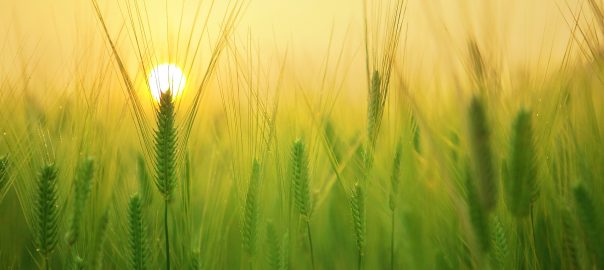Glyphosate myths, facts and a reality check
by Sara Russell, Ph.D., NTP
I'm really glad that more and more people are learning of the dangers of glyphosate.
Please remember that, no matter how awful glyphosate may be (and that's a whole lot of awful), it doesn't make everything else harmless. In this age of memes and click-bait titles, it’s easy to come to the wrong conclusion through reductive thinking processes. But for those with severe health problems, misconceptions about glyphosate may cause very grave harm.
Myth # 1: “It’s the glyphosate, not the gluten”
One common refrain that has been repeated over the past few years in various permutations is some variation on the theme of “It's not the wheat, it's the glyphosate” or “it's not the gluten, it's the glyphosate” and that because glyphosate is evil, people with celiac disease and other serious medical conditions who avoid gluten for health reasons can safely consume gluten-containing grains as long as they are organic and heirloom.
Myth #2 “Wheat in Italy and France is safe for everyone”
Another common myth is that if you're celiac or otherwise severely gluten-sensitive, eating a croissant or baguette while on vacation in Italy or France is fine because “their gluten is different” and “they don't use glyphosate in Europe…”
Did you know that 40% of the wheat consumed in Italy is imported from North America? And you may be surprised that glyphosate is actually pretty common in European agriculture, including Italian and French, although less widespread than in the US and of course not permitted in organic agriculture. If you digest your food better while on vacation, that's because you're more relaxed. Italy has an incredibly high rate of celiac disease, and while there are a few very sick celiac patients in Italy who still sneak wheat products here and there, most of them are smart enough to stick to their doctor's orders to consume a strictly gluten-free diet. The Italian government considers this such an important issue that each diagnosed celiac in Italy is given vouchers of 100 euro per month that are valid on specific gluten-free foods.
Myth #3: “If it’s bad for me, I’ll know right away”
A lot of celiac disease is “silent” – that means that many celiac people feel no immediate stereotypical gastrointestinal reaction in many cases and a significant number of people with celiac disease struggle with mysterious fatigue, nutritional deficiencies and neurological and/or psychological symptoms for decades before getting a diagnosis. Sometimes parents or even grandparents only get a diagnosis after a child in the family gets diagnosed.
Harmful rhetoric
While it's true that glyphosate is a poison for all of us, a lot of people are sensitive to gluten and/or allergic to gluten-containing foods, and I do think the line of thought that exaggerates the glyphosate piece is putting a lot of truly gluten-sensitive people at risk (including some celiac people who are being advised against all reason to consume gluten-containing organic and heirloom varieties of wheat).
Yes, glyphosate (or stress, for that matter) can definitely accentuate the effect of gluten on weakened body barriers, but a body that has mounted an autoimmune or allergic response to gluten is a gluten-sensitive body in its own right.
Exceptions?
I think that only those people with a sub-clinical gluten sensitivity (not an allergy and not an autoimmune response to gluten or its components) may fit with the picture of a possible wheat intolerance being correctable by taking care to reduce glyphosate exposure. This doesn’t mean just switching to organic, heirloom wheat. It means avoiding environmental exposure from yard chemicals in your neighborhood. It means not living in an area where glyphosate is sprayed on crops. It means avoiding crops that are sprayed with glyphosate, including – sorry, everyone – wine. It means doing the long, hard, deep work of foundational healing before re-introducing possible trigger foods into your diet.
Toxicities are synergistic, not mutually exclusive
I feel that the line of saying “it's not the gluten, it's the glyphosate!” is a bit like saying, “It's not the mercury, it's the aluminum!” or “It's not the lead poisoning, it's the EMFs” – these are false dichotomies, which acknowledge one danger by denying another. Yet the effects of toxic exposures, allergies, autoimmunity are compounded and synergistic, not mutually exclusive.
Sara Russell is a Nutritional Therapy Practitioner who works remotely with clients worldwide, specializing in complex health conditions. Sara’s approach is client-centered, approaching each clients' health goals from a foundationally from a root-cause-oriented, bio-individual perspective. She resides in the Tuscan countryside with her husband and seven-year-old son. You can learn more about Sara’s work and read her blog at Build, Nurture, Restore.


